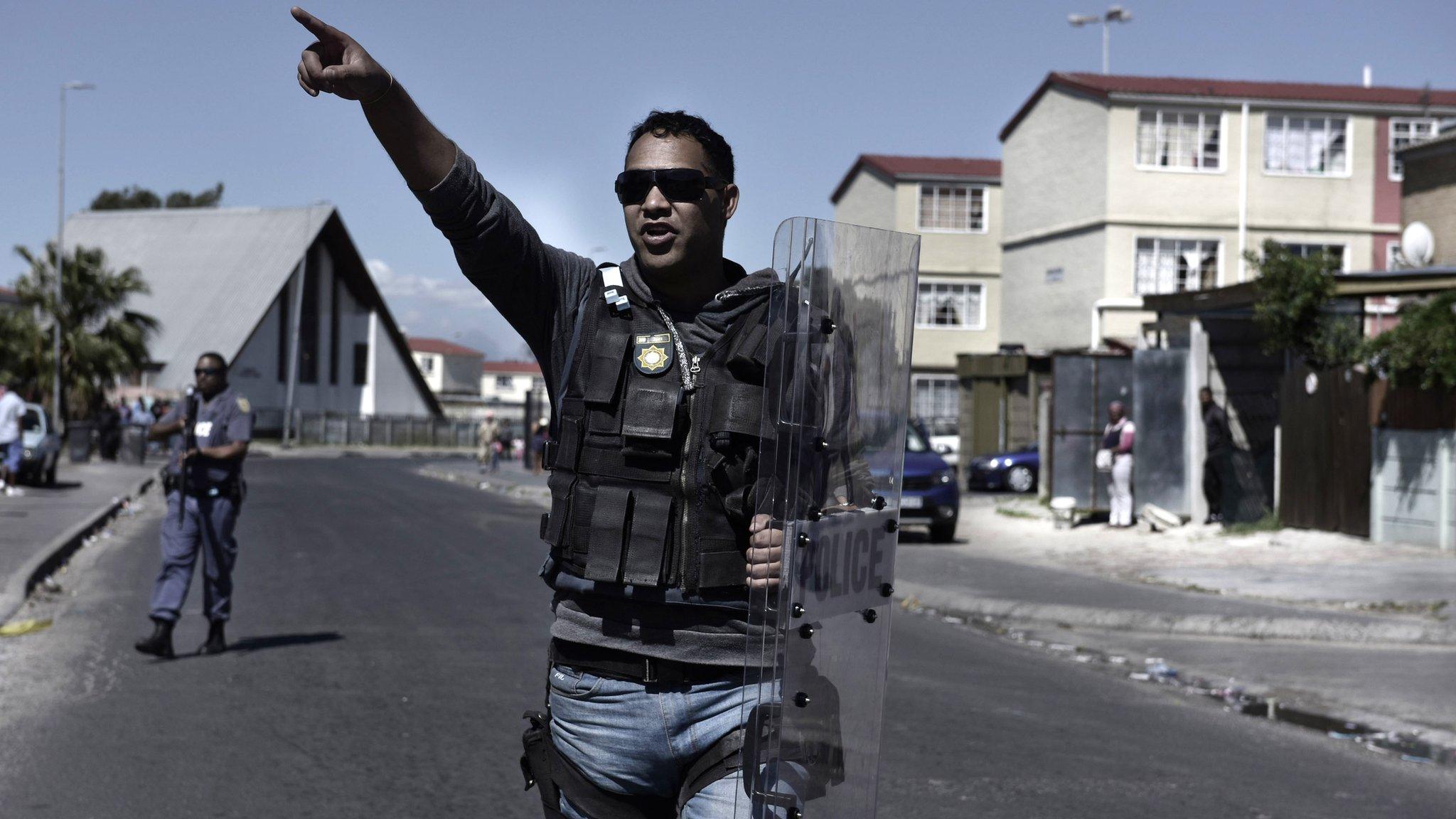South Africa's election: Five things we've learnt
- Published
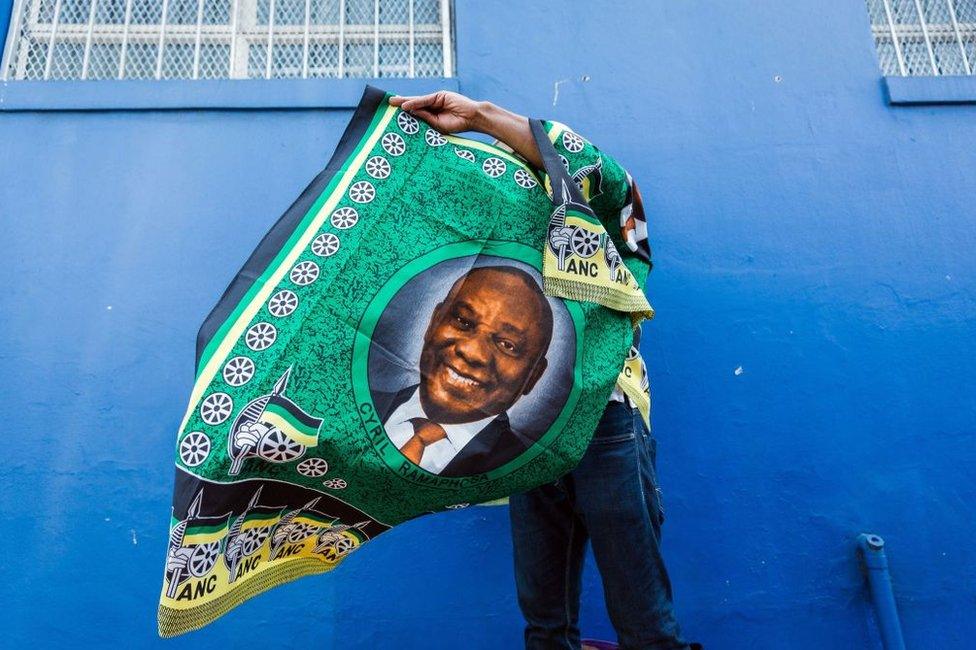
Plummeting voter turnout and big gains for fringe parties at either end of the political spectrum are arguably signs of South Africa's maturing democracy, however they could also be seen as evidence of a more divided society. The governing ANC has limped on with a reduced majority but some difficult challenges lie ahead.
1: The ANC lost ground - but is celebrating
Many people are asking why the governing African National Congress (ANC) is happy after recording its worst performance since white minority rule ended in 1994 - 58% share of the vote.
This is the first time the party that has led South Africa since 1994 has won less than 60% of votes, but for an organisation that is hugely divided, riddled by corruption and has had a decade of lethargic leadership, this result is seen as a boost for its new leader Cyril Ramaphosa.
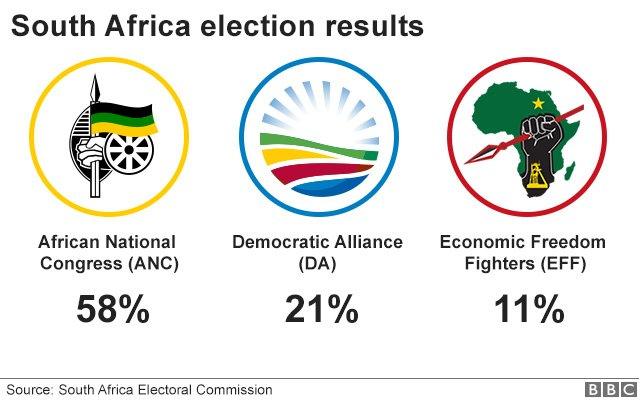
Many people see this as the ANC's last chance to redeem itself.
Mr Ramaphosa took over the party in December 2017, after the ANC sacked Jacob Zuma, embroiled in corruption allegations, which he denies.
One of its senior members, Fikile Mbalula, said the party's share of votes "would have probably dropped to 40%" had its leadership not changed.
But the ANC shouldn't celebrate too soon.
The people of South Africa may have given the ANC a mandate to lead, but it is not unconditional.
The last decade has been damaging to the party's reputation and has alienated millions of South Africans who are desperate for their conditions to improve, and had trusted the ANC to do that, but instead they got worse.
Growth has been slow here, millions are unemployed and society remains hugely unequal.
Now begins a tough juggling act for Mr Ramaphosa - the act of restoring confidence in his government and more importantly delivering on his promise to fight corruption.
The ANC has been accused of putting its own survival ahead of the interests of the country. How Mr Ramaphosa chooses his cabinet will be the first indication of whether that has changed.
2: The official opposition has an 'identity crisis'
This has been a difficult result for the main opposition Democratic Alliance (DA) - a "bruising outcome", some have said.
It's the first election in which the party's vote share has not grown. In fact, it lost some of its conservative supporters to the more radical Freedom Front Plus (VF+), a right-wing, mainly Afrikaner minority party.
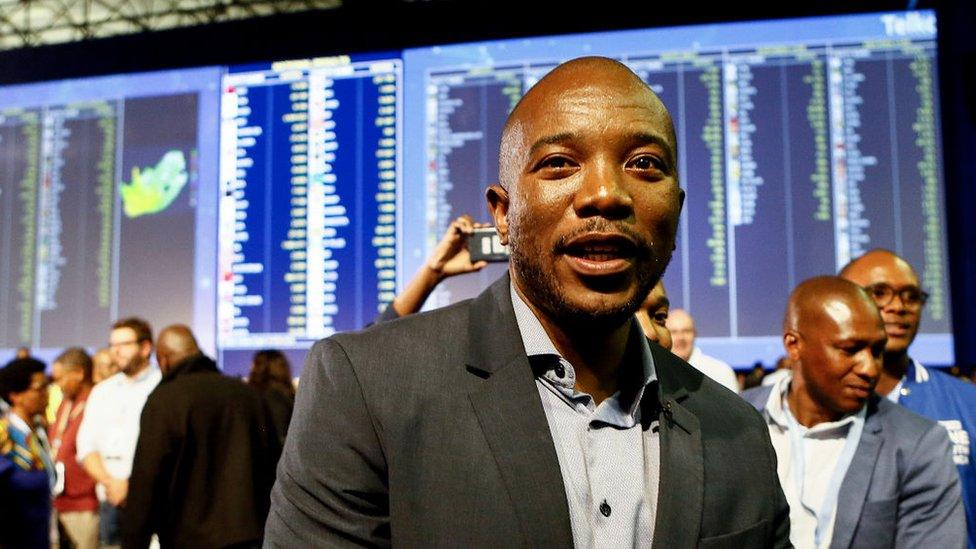
DA leader Mmusi Maimane puts on a brave face at the electoral commission's results centre
Some analysts have said the DA also failed to make inroads with South Africa's black population.
This has partly been attributed to what some have called "an identity crisis".
The DA is still seen within the black community as a white party, protecting white interests, something its black leader Mmusi Maimane has been working to disprove.
Commenting on the outcome, Mr Maimane said the party needs to do some self-reflection, but added that the DA "refuse[s] to be a party for one race".
Other senior members have been bolder, stating that the DA "is not a party for racists", alluding that it is better off without the support of those with deeply held racist sentiments.
Still, the numbers matter, and this will be the big test for Mr Maimane's leadership.
The DA is now looking ahead to the 2021 elections, hoping to redeem itself there.
But having been accused by VF+ of "trying to be everything to everyone", the DA has some hard decisions to make - and will need to be clear about where it wants to focus its energies.

The men who would be president:

3: Radical EFF gains support
The Economic Freedom Fighters (EFF), which wants to seize white-owned land without compensation and nationalise the huge mining industry, was one of the fastest-growing parties at this election, increasing its share of the vote from 6% to 10%.
Crucially, it has also become the official opposition in three provinces.
The EFF, with its "no-nonsense" leader Julius Malema, always talks a big game. On the campaign trail, representatives called themselves "the government-in-waiting".
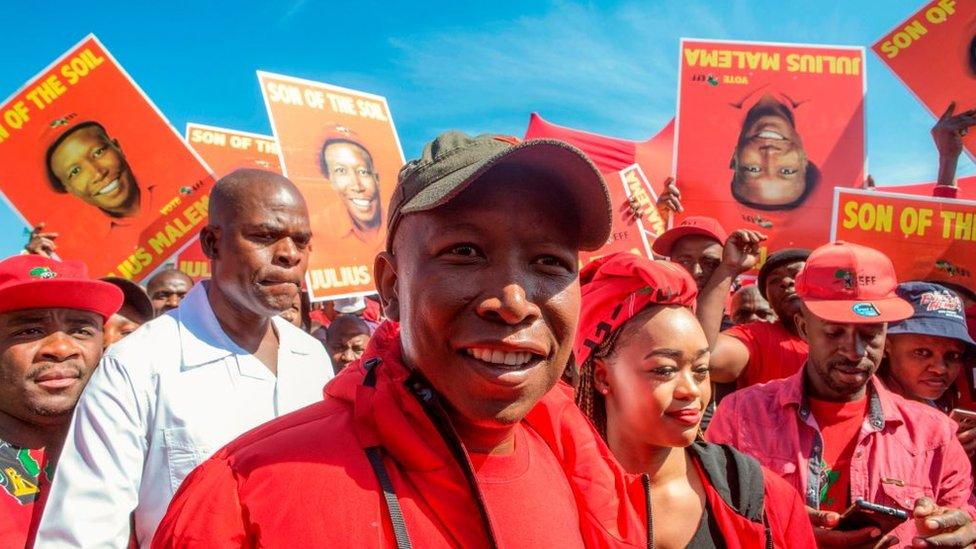
Julius Malema's EFF party increased its share of the vote to 10%
They are of course nowhere near that, judging by the huge margin between the EFF's support base and that of the ANC.
But undeniably the EFF's message of being a party for the poor and working class has resonated, and it has found a support base with the disgruntled.
The party has been accused of populism and divisive rhetoric by the more moderate parties in South Africa, so it will be interesting to see how the EFF maintains its support base over the next five years.
4: Rise of the Afrikaner nationalists
One of the biggest surprises has been the growth of the Freedom Front Plus (VF+). The mainly Afrikaner party, which says it's fighting for the right of minority groups, has doubled its support, to about 2%, making it the fifth largest party nationwide, behind the mainly Zulu Inkatha Freedom Party.
Five years ago, VF+ was lost in obscurity. So why did it grow and how?
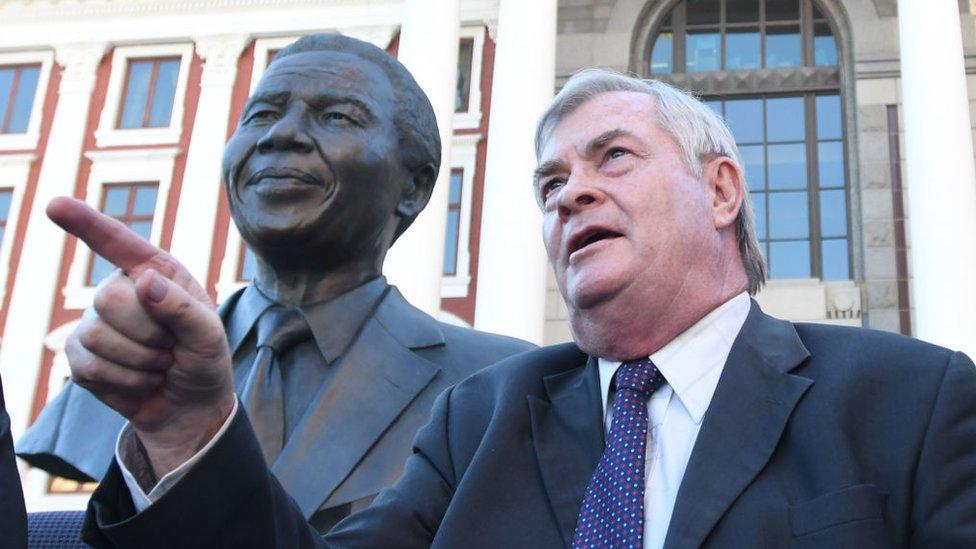
Pieter Groenewalk is the leader of Freedom Front Plus
One theory is that the contentious issue of land expropriation without compensation, touted by the ANC and EFF, pushed some DA supporters towards this more hardline party because they feared the DA would not protect their interests.
The debate on land expropriation also encouraged existing members of VF+ to go out and vote.
Their message was simple - white Afrikaners are under siege and needed to protect their interests as a minority group in South Africa.
5: Plummeting voter turnout
Hard lessons need to be learned by South Africa's political parties, with voter participation at its lowest since the dawn of democracy in 1994.
What's more, about 1 in 4 people did not register, external, according to Africa Check.
'I am not voting - I'm very upset'
There are two ways to interpret this.
Voter apathy is the first: a portion of the population has lost faith in the country's political leaders - all of them - and therefore chose to stay away.
The second interpretation is that this is part and parcel of a maturing democracy.
Perhaps the lesson is that leaders need new ways of appealing to voters - particularly South Africa's young people, 6 million of whom did not register to vote.
It would be too simplistic to suggest that young people are not interested in politics or what is happening in the country.
They are worst hit by soaring rates of unemployment and have been at the forefront of protests challenging the status quo.
What this general election has shown us is that while South African youths are active in civil society, this is not translating to the formal process of voting.
And that is a problem for all political parties.
- Published2 May 2019
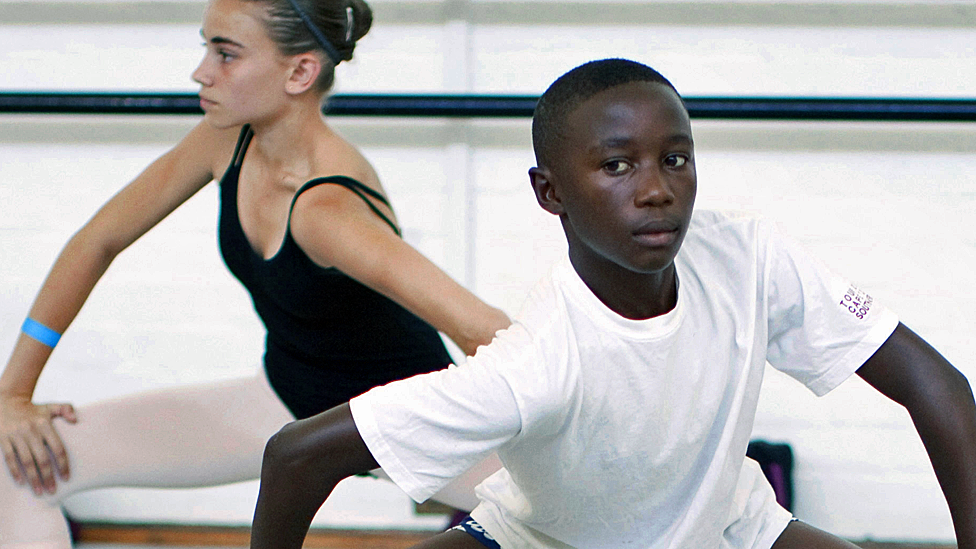
- Published7 May 2019
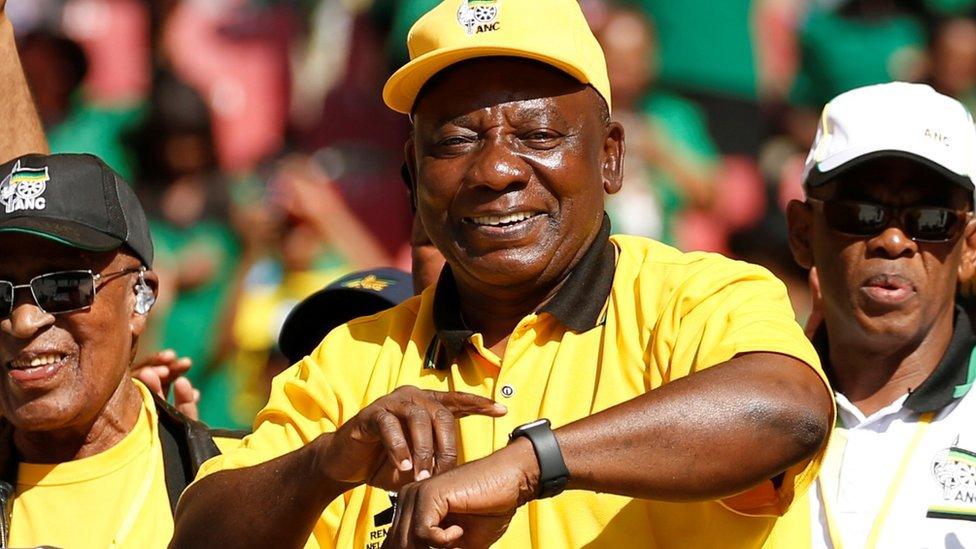
- Published17 June 2024
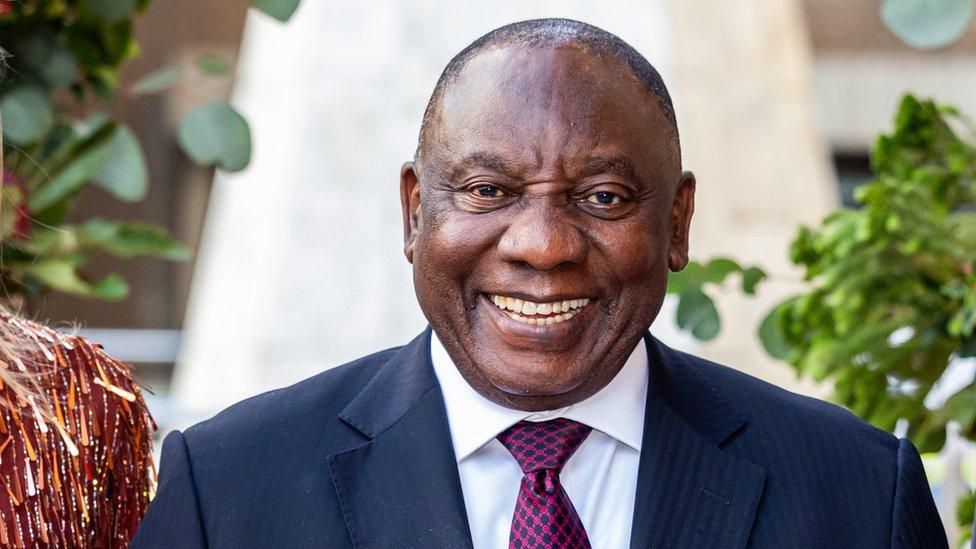
- Published30 April 2019
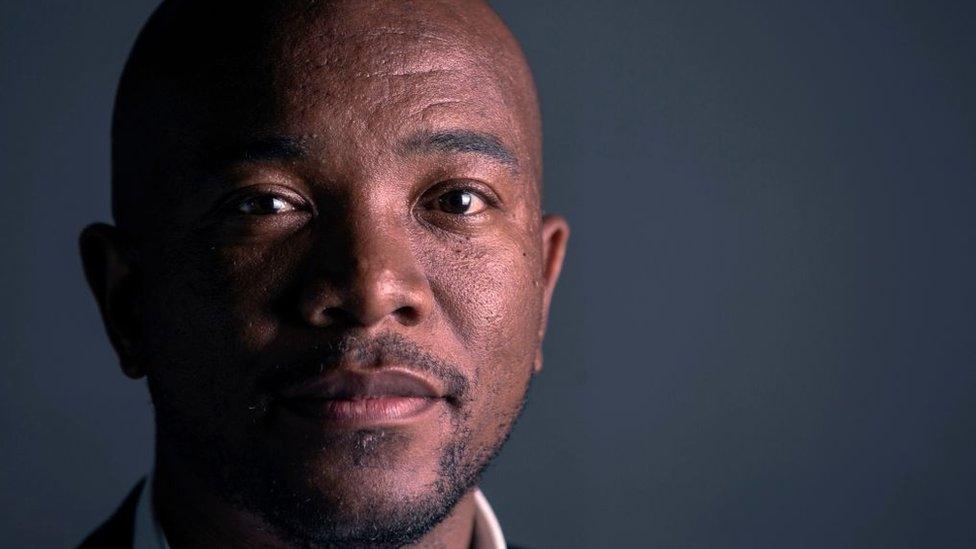
- Published8 May 2024
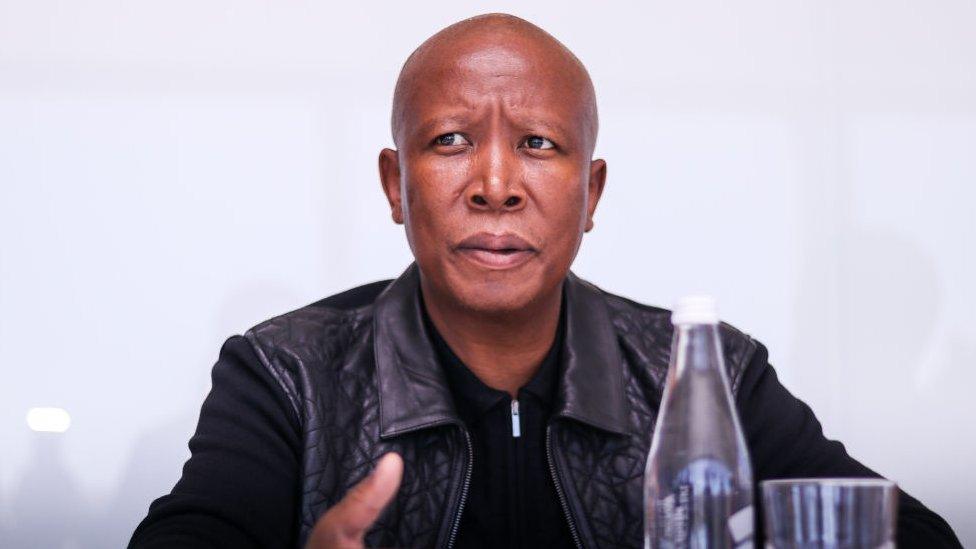
- Published5 May 2019
